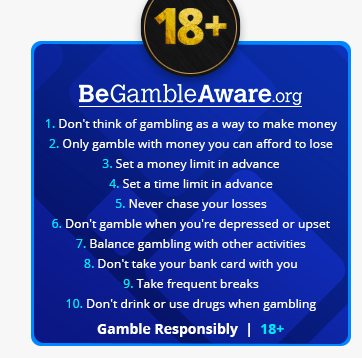Can You Gamble On Twitch?
Can you gamble on Twitch?
Maybe a better question would be should you gamble on Twitch?
The answer is both straightforward and kind of confusing. After all, there are many different types of “gambling”. You’ve got standard online casino games like poker, slots and blackjack and then you have gambling like CS:GO skins (we all know how that went) and then you have the seemingly innocuous stream giveaway. In this post, we’ll go over some of the rules around Twitch gambling and whether or not you’re in the clear (as a viewer or streamer).
Gambling on Twitch: What You Need To Know
First things first, you cannot stream illegal gambling on Twitch. Duh, right? Secondly, whatever gambling you are streaming has to be legal in the place you’re streaming it from (the jurisdiction). For example, you can’t just claim “it’s legal somewhere”. It has to be legal where you are.
Twitch also has rules about how long you can stream legal gambling activities (keyword: legal). Twitch allegedly says you can’t show more than 30 minutes of consecutive gameplay with real money. While it’s unclear where that rule lives in Twitch’s Terms of Service it appears to be known by several gaming bloggers. “The rule is that the broadcasting game play can’t be 30 or more minutes of consecutive gambling. The streamer can simply switch from real-money to play-money gaming for a few minutes, and then switch back for up to 29 more minutes,” explained user Grameister777, on a blog post explaining Twitch gambling laws. Other blogs and Reddit posts backed up this claim.
If you are going to abide by the 30-minute rule, make sure to have a “mature content” warning and require users to verify their age.
That said, there doesn’t seem to be a huge crackdown on these activities. Twitch has categories like “Slots” and “Virtual Casino” readily available. In fact, when I clicked into them there was no age gate. Streamer ClassyBeef, who plays in “Slots” category, did have a clear 18+ warning and suggestions like “Don’t think of gambling as a way to make money” and “Don’t gamble when you’re depressed or upset.”
Gambling Within Gaming
What about betting on skins? Or gambling using gameplay? For the uninitiated, “In video games, skin gambling is the use of virtual goods, which are most commonly cosmetic elements such as ‘skins’ which have no direct influence on gameplay, as virtual currency to bet on the outcome of professional matches or on other games of chance.” (Thanks, Wikipedia)
This is a very popular form of “gambling” and the rules are murky at best.
Back in 2016, when the CS:GO debacle occurred, Valve changed its terms of service which in turn changed the landscape. In a nutshell, advertising “gambling” to your viewers, then rigging the system is not a good way to go. When Valve changed their Terms of Service so did Twitch.
Valve stated that using “the OpenID API and making the same web calls as Steam users to run a gambling business is not allowed by our API nor our user agreements.” Twitch’s TOS reminds viewers that breaking a third-party TOS, is equivalent to breaking their TOS.
Valve also issued several cease and desist letters to 23 sites they believed involved in skin gambling that were inappropriately using their services.
All of that said, skin gambling and virtual currency is still alive and well. But remember, if you are interested in pursuing those “types'“ of streams you may be putting yourself at financial and legal risk.
Are Giveaways Gambling?
A ton of streamers offer giveaways to their viewers, which doesn’t seem like gambling but there are still rules to follow. For example, you cannot charge money for entires or increase the odds of winning for people who donate more money. The easiest way to think about it is, make sure you’re not doing any kind of pay to play. Giveaways should just be an added value for watching your stream — a giveback to your community.
Questions about Twitch gambling? Feel free to drop a comment, but since the rules seem to be the Wild West it’s unclear who will have the correct answer.
